Some are asking, why should even care about Darya Dugina's assassination? Because:
1. It is almost certainly the FSB false flag operation
2. Most likely, it will be used as a pretext for strikes that had been already pre-scheduled for the Ukrainian Independence Day this Thursday
1. It is almost certainly the FSB false flag operation
2. Most likely, it will be used as a pretext for strikes that had been already pre-scheduled for the Ukrainian Independence Day this Thursday
Once again. Strikes later this week are highly likely, they have must been prescheduled long ago. Most probably, on Thursday-Friday. It's quite probable that Putin wants to scale up and sacrificed Dugina to needs justify future strikes as counter-terrorist action or sth like that
Assuming this is true, why was Dugina chosen as a sacrificial lamb? Presidential plenipotentiary Schegolev's speech on her funerals gives some idea:
1. Alexander (and Darya) Dugina were nobody in the Russian system of power
2. But the West believed they were somebody
AMAZING
1. Alexander (and Darya) Dugina were nobody in the Russian system of power
2. But the West believed they were somebody
AMAZING

If Putin planned a false flag operation to get a pretext for escalation, than Darya made a better sacrificial lamb than Alexander. *Exactly* because she is young woman. Her death would trigger more outrage. Legions of pornocephals gonna flood the internet with pro-Russian content 
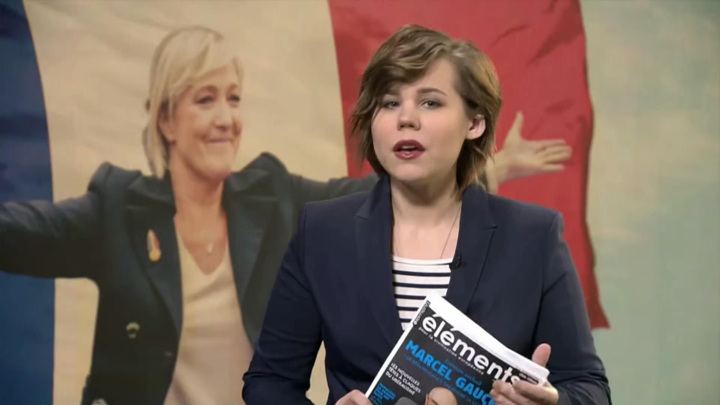
Alexander Dugin is playing exactly this game:
"We need only the Victory. My daughter put her maiden's life on its altar"
Indeed, theme of sacrifice is very common for Dugin. He was obsessed with the idea of ritual sacrifice for the greater good. Constantly thinking about it
"We need only the Victory. My daughter put her maiden's life on its altar"
Indeed, theme of sacrifice is very common for Dugin. He was obsessed with the idea of ritual sacrifice for the greater good. Constantly thinking about it

Some hints on Dugin's views on the sacrifice. He's quoting a Jung's argument that for the sake of ritual, the sacrificer and the sacrificed, must be one.
academia.edu/28552964/НООМА…
academia.edu/28552964/НООМА…
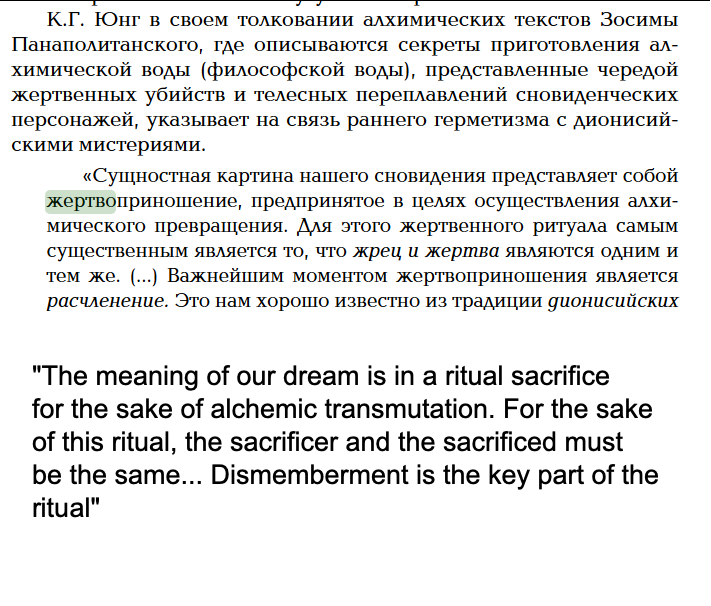
Dugin about the ritual sacrifices in his textbook for college students "Ethnosociology"
4pt.su/ru/content/этн…
4pt.su/ru/content/этн…
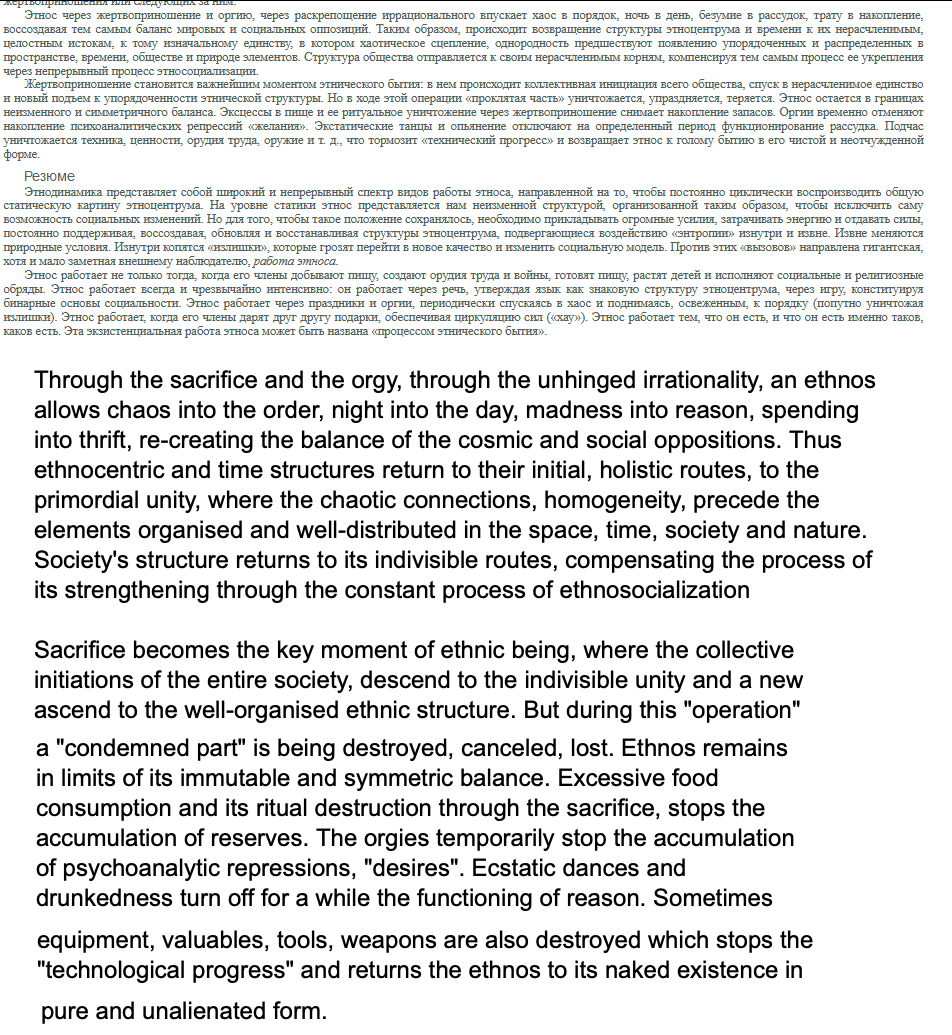
For some reason other pro-war activists also tend to use the language of ritual sacrifice to describe what happened. Consider Prilepin. This pro-war writer used to be a member of the National Bolshevik Party with all its death worshipping esotericism
iz.ru/1383782/2022-0…
iz.ru/1383782/2022-0…
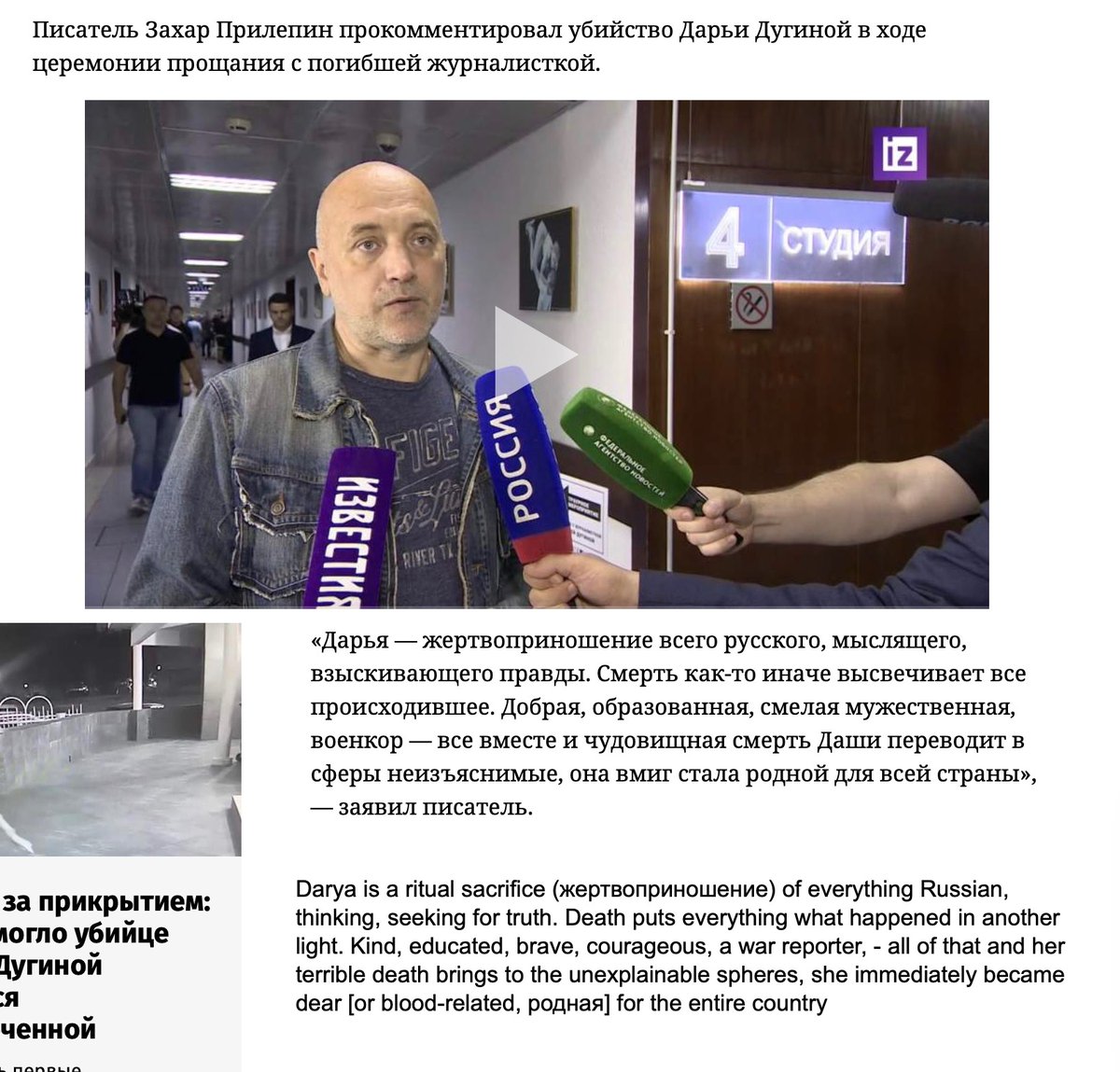
If it was the FSB false flag operation (which is almost certain), than it was most likely Darya and not Alexander who was the real target. If Alexander knew it all beforehand, I won't be much surprised. See him on Darya's funerals 
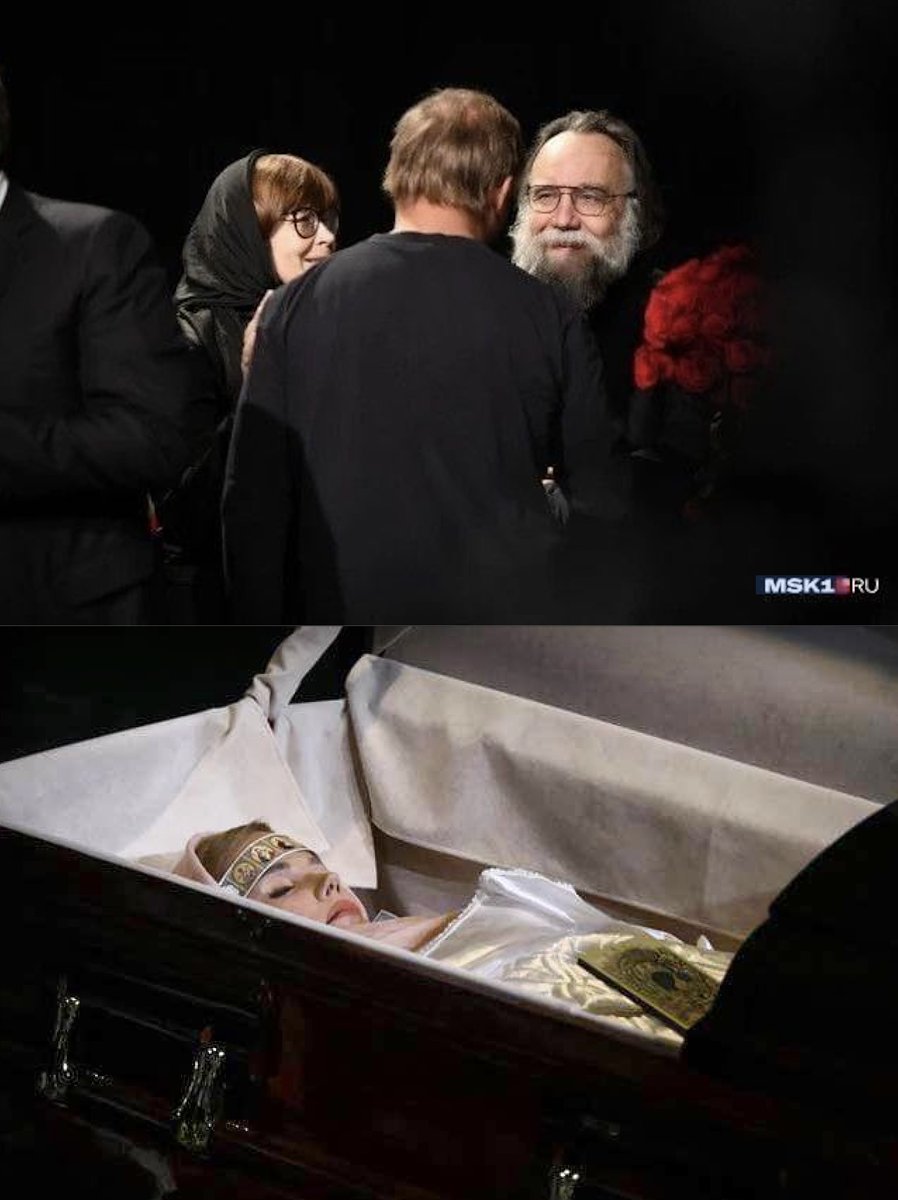
The FSB false flag attack probably aimed to trigger exactly this type of reaction from the Western useful idiots. Preparing to launch massive strikes later this week, Russia needs to present its actions as "retaliatory". That's the most likely reason for them killing Darya Dugina
Putin, Parliament, key propagandists are trying to elevate previously virtually unknown Darya to the key martyr of the state cult:
"One country, one President, one Victory"
declares MP Slutsky on her funerals. Russia is kinda starting resembling a bad Third Reich cosplay
"One country, one President, one Victory"
declares MP Slutsky on her funerals. Russia is kinda starting resembling a bad Third Reich cosplay
In Russian conditions nobody would speak against a new Horst Wessel campaign. But some gonna keep silence. What is interesting, neither Shoygu, nor Ramzan Kadyrov did not express any condolescences, threats or warnings regarding Darya's death. Just silence 
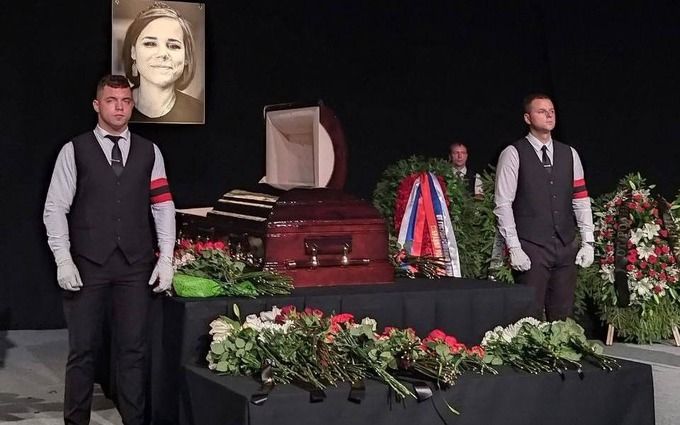
To sum up. Most likely:
1. FSB killed Darya
2. as a pretext for escalation pre-planned for the end of this week
3. Why now? August 24, Ukrainian Independence Day. August 25, the Russian parliament session. Some expect significant changes in policy to be announced there. The end
1. FSB killed Darya
2. as a pretext for escalation pre-planned for the end of this week
3. Why now? August 24, Ukrainian Independence Day. August 25, the Russian parliament session. Some expect significant changes in policy to be announced there. The end
• • •
Missing some Tweet in this thread? You can try to
force a refresh





